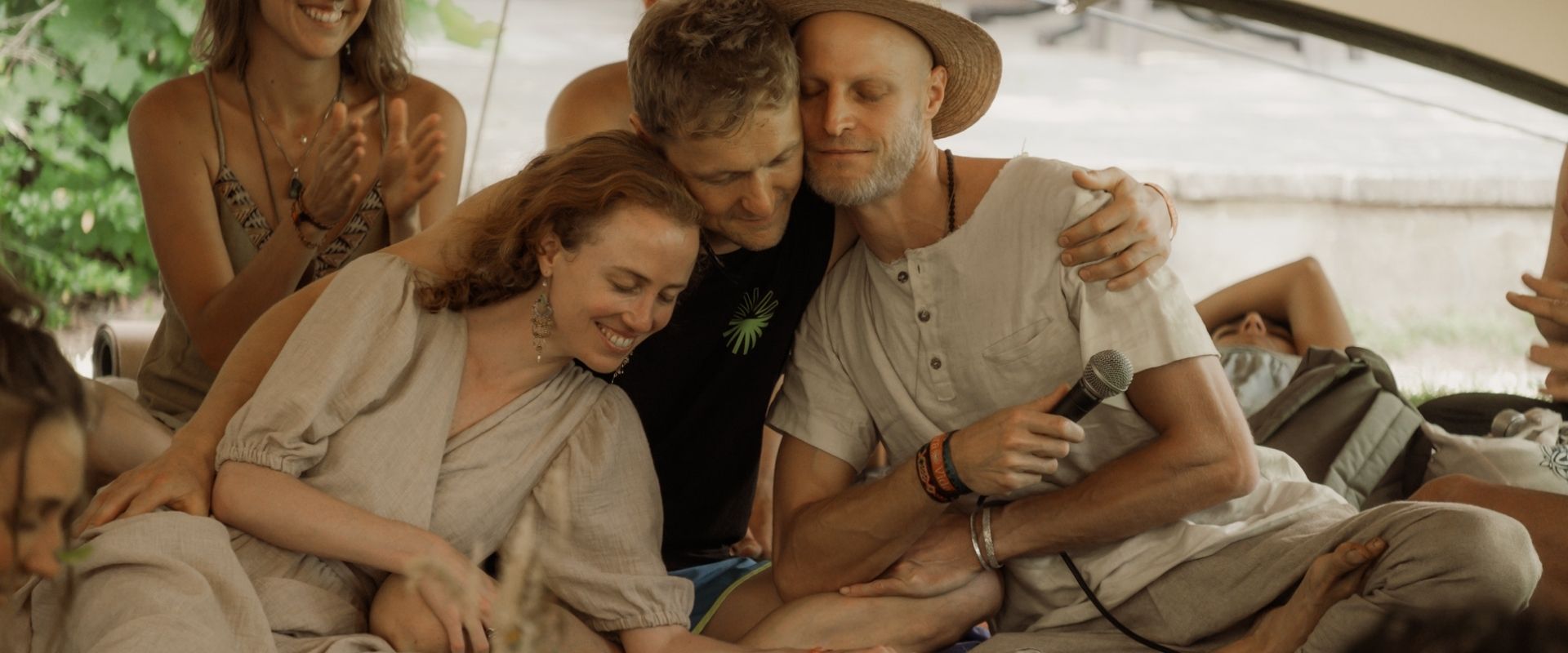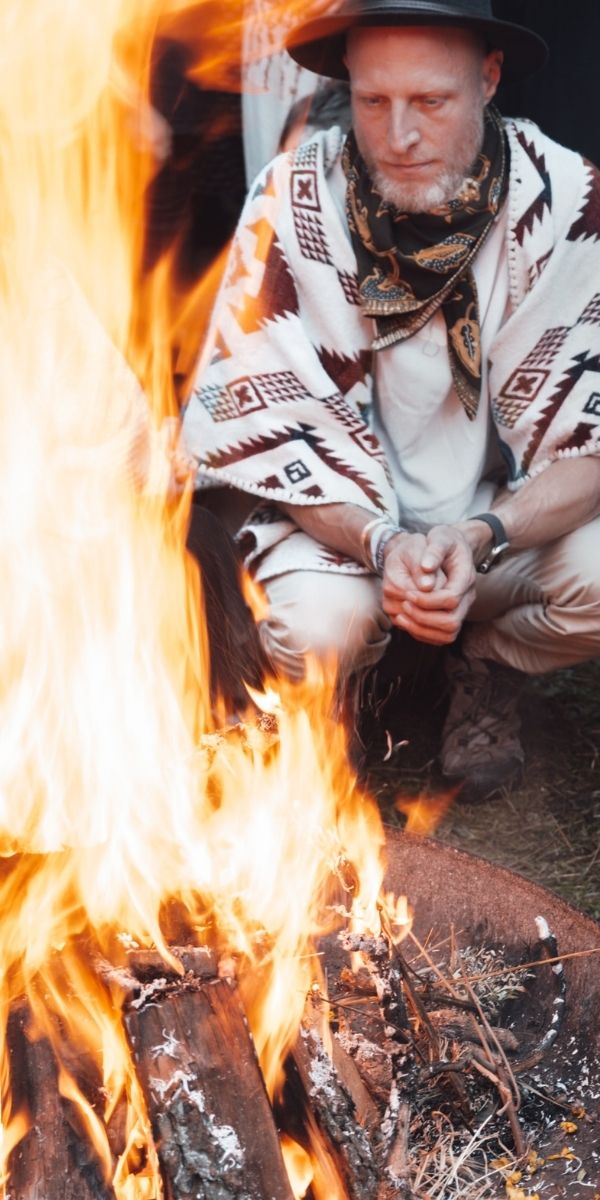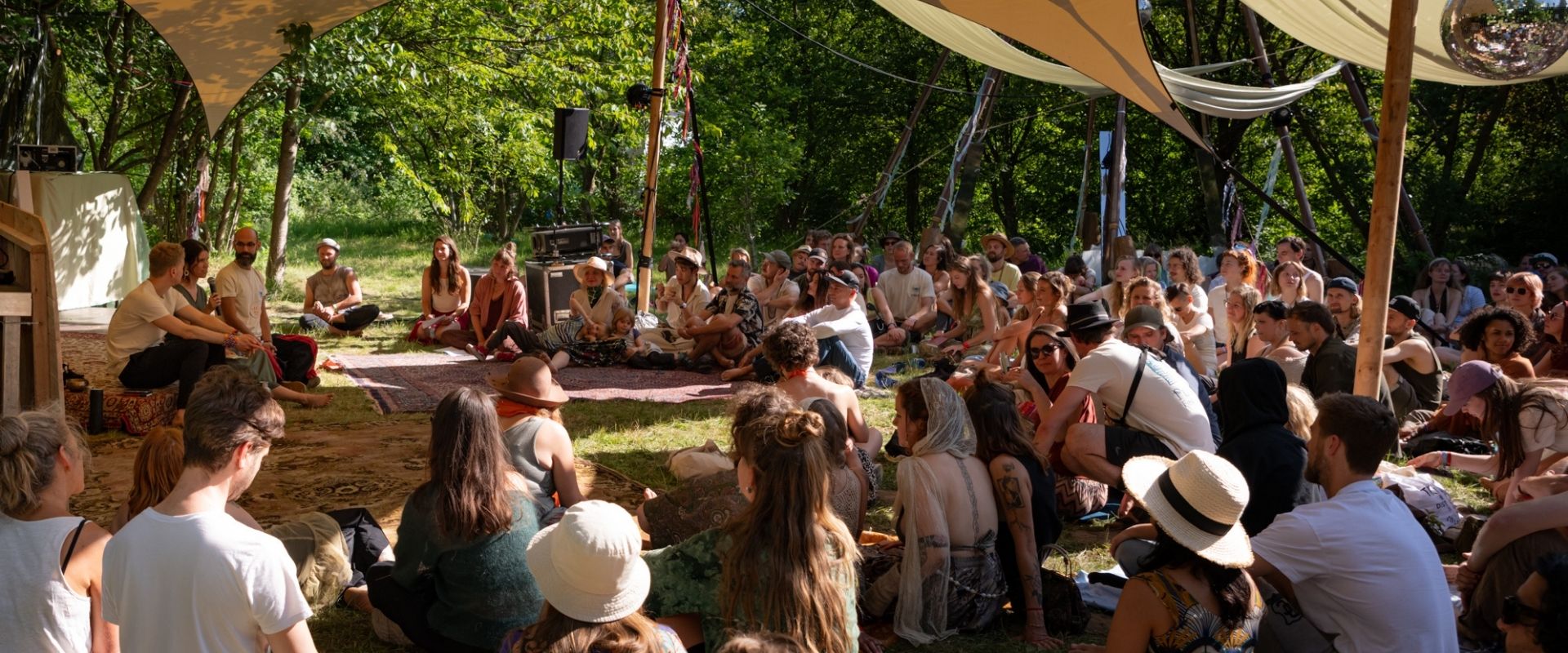We care about your data, and we'd use cookies only to improve your experience. By using this website, you accept our Cookies Policy.
Co-Founder Chris shares key lessons about the importance of team relationships, the danger of burning out from passion and how our shift toward a non-profit, holocratic and decentral structure became both an act of purpose and a journey of organisational development.

When we started Pura Vida Festival Retreat, together with my co-founders Felicitas Vallot and Ocean (aka Martin Ebeling), I was driven by a clear intention: to create a conscious, heart-led space for connection, transformation and potential unfolding. What I underestimated was just how complex, demanding, and transformative this journey would become — not only logistically, but also emotionally and spiritually. Here come the key lessons I learne as a founder.
What I completely underestimated was how much effort it takes to market a festival — especially in a city like Berlin, overflowing with cultural events, raves and spiritual gatherings. The competition for attention is relentless. Every weekend offers dozens of options and standing out requires more than a beautiful program or an inspiring mission.
Beyond that, we faced a deeper communication challenge: people in Berlin had to be convinced to come to a conscious festival — one without alcohol or substances. “Wait, what? No drinks, no drugs?” was a common reaction. Many couldn’t imagine that joy, connection and depth could happen without substance shortcuts.
It took storytelling, patience and clarity to show that what we offer isn’t restriction — it’s expansion. When people arrive fully present, something profound happens: they experience connection on a completely different frequency. The nervous system calms. The sense of belonging deepens. The joy feels pure and a sense of wholeness arises that often lingers as a collective high — sometimes for weeks.

After the first years, I realised that I had focused too much on outcomes — tickets sold, logistics solved, milestones reached — and too little on founder and team relationships. After one festival, the next was already around the corner, and that constant rhythm made it easy to prioritise execution over connection.
But I learned the hard way that relationships are the foundational infrastructure. They hold everything together when the chaos inevitably hits. Because most of us organised the festival next to full-time jobs, time was limited, communication often rushed, and misunderstandings frequent.
Over time, we built simple but powerful team rituals: we started hosting team retreats, regular check-ins, retrospectives, appreciation moments and vision sessions to reconnect with why we were doing this in the first place. These weren’t “nice extras.” They became essential. When trust and communication flows, creativity follows naturally — and burnout becomes far less likely.

I’ve always been passionate about Pura Vida. I poured all my time, energy and heart into it. And that’s exactly why I almost burned out. When you love what you do, it’s dangerously easy to forget boundaries. You tell yourself it’s worth it, that it’s temporary, that next week you’ll rest — and then months pass.
At one point, I realised I had fulfilled nearly all the criteria of burnout: exhaustion, pressure, sleeplessness and the feeling that my personal worth depended on the festival’s success. Passion can blind you, especially when you’re working voluntarily, investing your savings, time and energy into something that doesn’t pay financially and constantly tests your emotional capacity.
Ironically, stress and health were originally one motivator for me to shift my focus from the startup work in the energy sector towards personal wellbeing — only to find myself struggling again. I realised that despite years of self-care practices like daily meditation and yoga, they alone weren’t enough. I had to dive deeper into understanding what real self-care means for my body: finding the right combination of workout, nutrition, recovery, mindfulness and nurturing social connections to sustain high energy levels over a long period of time.
Today, I plan recovery phases directly into our yearly rhythm, we assigned tandem roles for key responsibilities and treat rest and emotional resourcing as a collective responsibility in the preparation and especially during the festival. In fact we have a whole team now working to balance the team during the festival. I learned when I protect my own energy, I protect the project’s longevity.
From the very beginning, we wanted to build something purposeful — a festival that served transformation and connection rather than profit. We started as a company to move fast, but after a few years, we realised our structure didn’t yet reflect our soul.
That’s when we decided to transform Pura Vida Festival Retreat into a non-profit organisation. This wasn’t just a legal change — it was an alignment of inner and outer worlds. Our mission was never about ownership, but about stewardship. Along the way, I also realised that someone owning a festival is quite a modern, capitalist concept. Historically, festivals were mainly communal — spaces of collective contribution and co-creation. To me, that’s the only way something like this can truly evolve: by weaving together the creativity and energy of everyone involved - that`s when it truly multiplies.
As a non-profit, the goal is not to make one person rich, but to let resources flow where they matter most: into meaningful programs, sustainable infrastructure, artist compensation and — hopefully soon — fair pay for our core team. Because true sustainability means that everyone involved can thrive. It’s our way of saying: profit isn’t the goal — potential is.
This decision also reflects a deeper conviction: we can’t solve today’s crises — from inequality and disconnection to ecological exhaustion — with the same extractive economic logic that created them. We need regenerative and participatory organisations — ones that facilitate social equality, engagement and collective creativity.
When we shifted to a non-profit structure, we also deepened our adoption of holocracy — a system for decentral and self-organised collaboration. Instead of hierarchies, we now work through roles and circles. Authority is distributed, not concentrated. Everyone knows their accountabilities and decisions are made where the expertise lies — not where the title sits.
It wasn’t easy at first. Autonomy can be confronting. It requires trust, communication and a willingness to unlearn habits of control. But over time, something remarkable happened: the organisation began to breathe. Ideas grew organically, accountability deepened and our meetings turned into spaces of vulnerable co-creation rather than coordination.
Holocracy, for us, became a living experiment in organisational development, where purpose and structure evolve together. It’s not perfect, but it’s alive. And that’s exactly what we wanted: a system that mirrors the principles we teach: mindfulness, trust and responsibility.

Every year, during and after the festival, a unique kind of energy emerges: a collective high that lingers for weeks. It’s not about excitement; it’s about deep connection. Over the years, I’ve come to understand what creates it: the combination of shared vulnerability, authenticity and collective rhythm.
At Pura Vida, people move through a full emotional spectrum together — from silence and self-reflection to ecstatic dance, from tears to laughter. Because everyone is sober, the connection feels clear, raw, and real. We meet each other without masks.
The social researcher Brené Brown describes our modern world as a “scarcity culture” — a collective belief that we are never enough. On the festival grounds, the opposite becomes true. Through vulnerability, empathy, gratitude and courage, we experience the shift from not enough to more than enough; from separation to belonging.
That’s the secret to Pura Vida’s transformative power: It’s not what happens on stage. It’s what happens between people. It’s not about performance, but presence and connection.
Pura Vida taught me that an organisation is not something you build, it’s something you become. Every decision, every structure, every meeting reflects inner alignment.
When we treat organisations as living systems — for purpose, decentral, guided by holacracy and anchored in consciousness — they stop being machines and start becoming ecosystems. That’s what the world needs more of: not just companies whose sole purpose is maximizing profit, but experiments in how humans can work, grow and create together in a way that serves a collective purpose.
If you’re starting your own initiative or leading a team that seeks more purpose, clarity and heart, I’d love to connect. Let’s explore how your organisation can evolve into something truly alive.
About Christian Huder

Christian Huder is one of the founders of the Pura Vida Festival Retreat, a unique gathering that facilitates personal growth, planetary regeneration and celebrates community. While his professional roots lie in engineering and entrepreneurship, his deeper journey has been about exploring how we can live and lead in harmony — with ourselves, with others and with the challenges of our time.
After years in the renewable energy and climate tech world — co-founding the Startup Energy Transition Tech Festival, building accelerators, supporting founders and serving as CMO of node.energy — Christian experienced first-hand how relentless performance culture without purpose can lead to imbalance and burnout. This turning point opened the door to a new path: integrating mindfulness, yoga and meditation with the leadership and productivity tools he once applied in business.
Through Unison Labs, Christian now supports founders, leaders, and organisations who want to grow consciously — aligning purpose, success, and wellbeing. He helps founders to implement best practice business frameworks, cultivate inner clarity, resilience and authentic communication to navigate complexity and expand their impact. With organisations, he works to build trust, alignment and healthy collaboration — the foundation for sustainable performance, thriving cultures and teams who are capable of building the innovations for a sustainable future.
→ If you are interested to work with him check out www.unison-labs.org or follow on Instagram !
